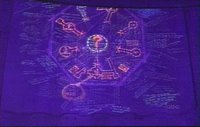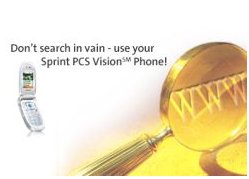People like Matt are saying that
Microsoft's web branding sucks. Dare points out
complexity and inconsistency.
Scoble agrees.
Okay, I'll admit it... I'm as guilty as the next guy for cracking jokes about releases like
Update Rollup 2 for Windows XP Media Center Edition 2005.
But before jumping on the pundit bandwagon, let's play a little devil's advocate with Matt, Scoble, and Dare.
1. What the heck is Windows Live?Matt writes:
If only to make matters worse, when I go to Google and search for "MSN Maps", my first result is the "MSN Maps & Directions" site, but it leads to Windows Live Local. That's confusing. Even more confusing is the following "MSN Virtual Earth" link, which also leads to the same Windows Live Local site. Finally, there is the "MSN Encarta" link, which one may be inclined to think would lead to a Windows Live site. Does it? No, it leads to MSN Encarta World Atlas.Yep. Unfortunately, today's search engines don't have real-time accuracy. When a company gets acquired, and it's web site merges into its new parent, users face the same problem for some amount of time. This happens when a company name, product name, or web site url changes.
Search Google for "Scoble". The first link is his old blog [3/27/06]. Problem with Scoble's branding, or with the search engines?
When I
search Google for "Keyhole", my first result is "Google Earth". Does Google have bad branding too?
2. Why rename MSN products?Is MSN the perfect brand? Do you know what it stands for? Do most people? Do English acronyms work well for people who don't speak English as a first language?
In much of the world, MSN has become a verb, meaning "to IM". Sounds great at first - we've got a verb (in <
insert country name here>). But what does that mean for the rest of the MSN products? You might Xerox papers, but are you inclined to purchase Xerox printers?
3. Why Windows Live?Funny how nobody seems to complain about
Xbox Live. It could've been branded just "LivePlay" instead of "Xbox Live". But the latter leverages the Xbox brand, which makes sense since Xbox Live is a set of online services that integrate with Xbox and provide "better together" functionality.
Similarly, Windows Live is a set of online services that integrate with Windows and provide "better together" functionality. Integrated search into the desktop is perhaps the most basic example, but there will undoubtedly be more deep integration over time. Sure, Microsoft has opened up both the Windows APIs and the Windows Live APIs so that you don't need to use Windows with Windows Live, but there is nonetheless value in doing so.
Maybe we don't "get" "Windows Live" because we're so used to just plain "Windows". But if you buy into some level of convergence between desktop software and services, it makes perfect sense. In any event, let's sit on this one for 12 months, and when we revisit it, let's see if "Windows Live" as an online extension of "Windows" makes perfect sense, ok?
4. Google vs. Yahoo vs. Windows Live product namesDare's list of Google vs. Yahoo vs. Microsoft product names is deceptive.
First, Google is not consistent. Sure, Dare lists Google Finance, Google Video, Google Groups, Google Talk, and Google Maps. But what about "Gmail", "Blogger", "Picasa", and my personal favorite: "Local for mobile"?
What about Yahoo's del.icio.us, Flickr, Upcoming.org, and other acquisitions? Should they rebrand to "Yahoo Tags", "Yahoo Photos", and "Yahoo Events"?
Should Microsoft follow suit, and brand its products "Microsoft Messenger", "Microsoft Maps", etc? But isn't the coolest thing about the Xbox how there's no Microsoft branding on it at all?
So what's the real issue? Is it the fact that it's "Windows Live" instead of some new
less-than-eight-character dot com web 2.0 sounding name? Then don't say "Windows Live Local" five times really fast. Say "Live Local". People don't say "Office Excel", yet people associate Excel with Office, they understand the Office brand, and it lends strength and understanding to other newer products in the Office system.
5. Why do products have years on them?Why do cars?
Actually, one of the biggest mistakes ever was "Office XP". To this day, people still think that because they have Windows XP, they should have Office XP and not Office 2003. Newer is better.
On the flipside, how is Joe User supposed to know the difference between "Tiger" and "Panther"? At the end of the day, are those short sexy names really simpler?
(Note, this doesn't really apply to web branding since multiple versions aren't available, and hence, years are omitted).
6. Systems, systems, systems...On top of product names, we have systems of products... like
2007 Microsoft Office System,
Windows Server System, and
System Center (no trailing system, probably because "System Center System" would be ridiculous).
Seems complicated. But is it?
Microsoft has hundreds of products. Grouping IT Management products into a brand like "System Center" helps customers understand a where a product fits in the lineup. For example, we have "[Microsoft] System Center Reporting Manager" instead of "Microsoft Reporting Manager". This is a product related to other System Center products that is targeted at the IT Professional.
Similarly, "Office System" products are related, and targeted at the Information Worker.
At the end of the day, this is arguably simpler for customers than a flat list of hundreds of products. As a side effect, it builds multiple powerful brands (i.e.: Microsoft, Office, and Excel).
7. In conclusion...I agree that names should be consistent and simple.
I'm not sure about one word that's less than eight characters, but I do believe you should be able to easily tell it to a friend, and possibly even use it as a verb (or at least use its features as verbs). Within Microsoft, we still say to people, "S+ me", which means "Schedule an appointment on my calendar in Outlook".
Schedule+ was the predecessor to Outlook. Outlook has no good verbs for "Schedule an appointment". So, verbs are good. At the same time, the danger here is that your trademarked verbs (or nouns) could
become genericized, which is potentially a bad thing.
In any event, bottom line is that MSN/Windows Live is in a transition period. Chaos always follows change. But I have no doubt that when it emerges from the chaotic change, the brand will be stronger than it ever was before.
(Now, where'd I put that kool-aid...)
 Lost is soooo amazing. If you haven't gotten into it, I strongly suggest signing up for Netflix and checking out the first season DVD.
Lost is soooo amazing. If you haven't gotten into it, I strongly suggest signing up for Netflix and checking out the first season DVD.









